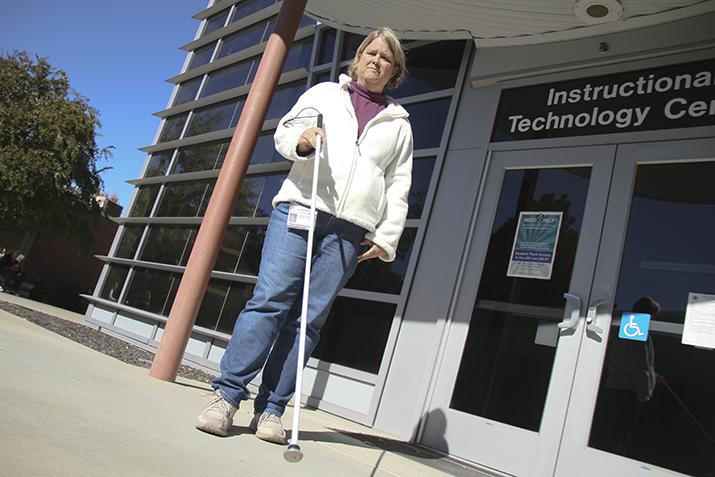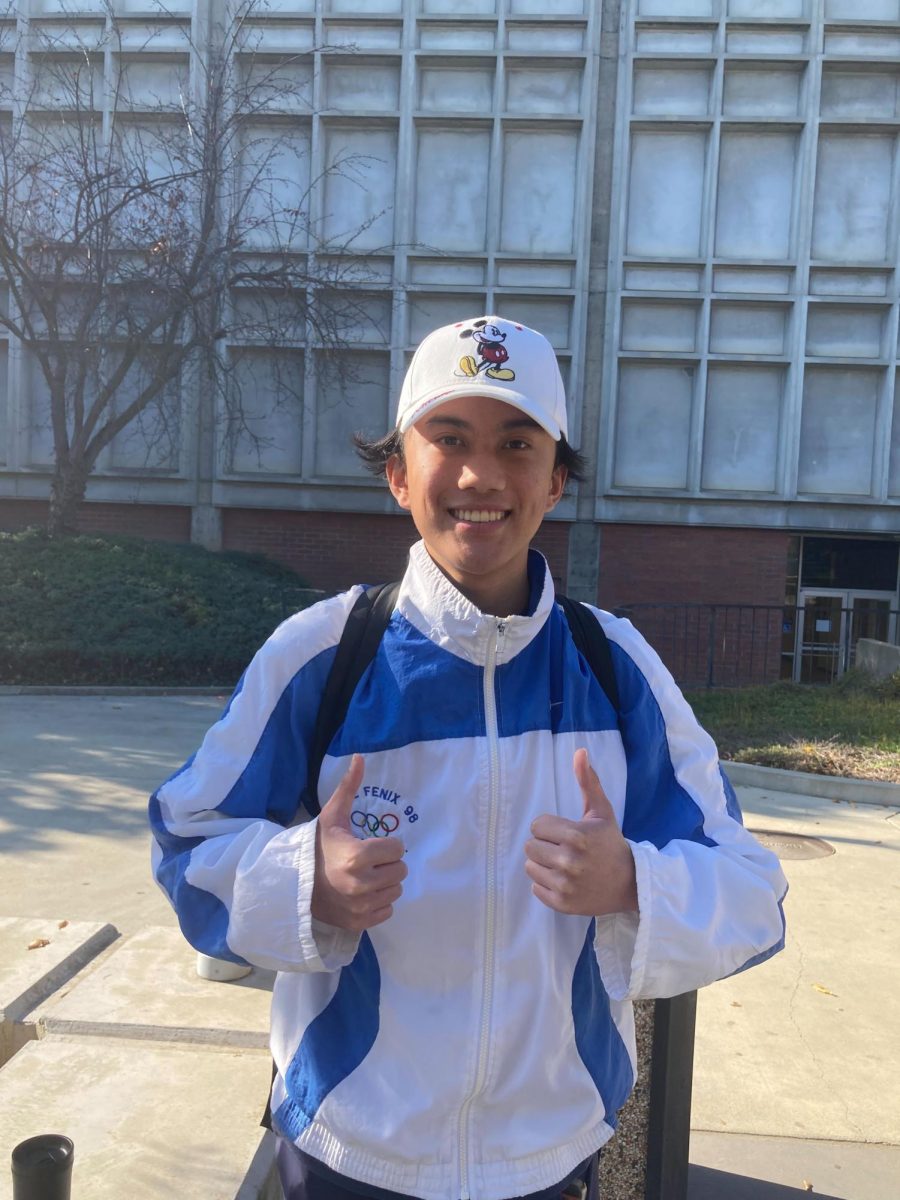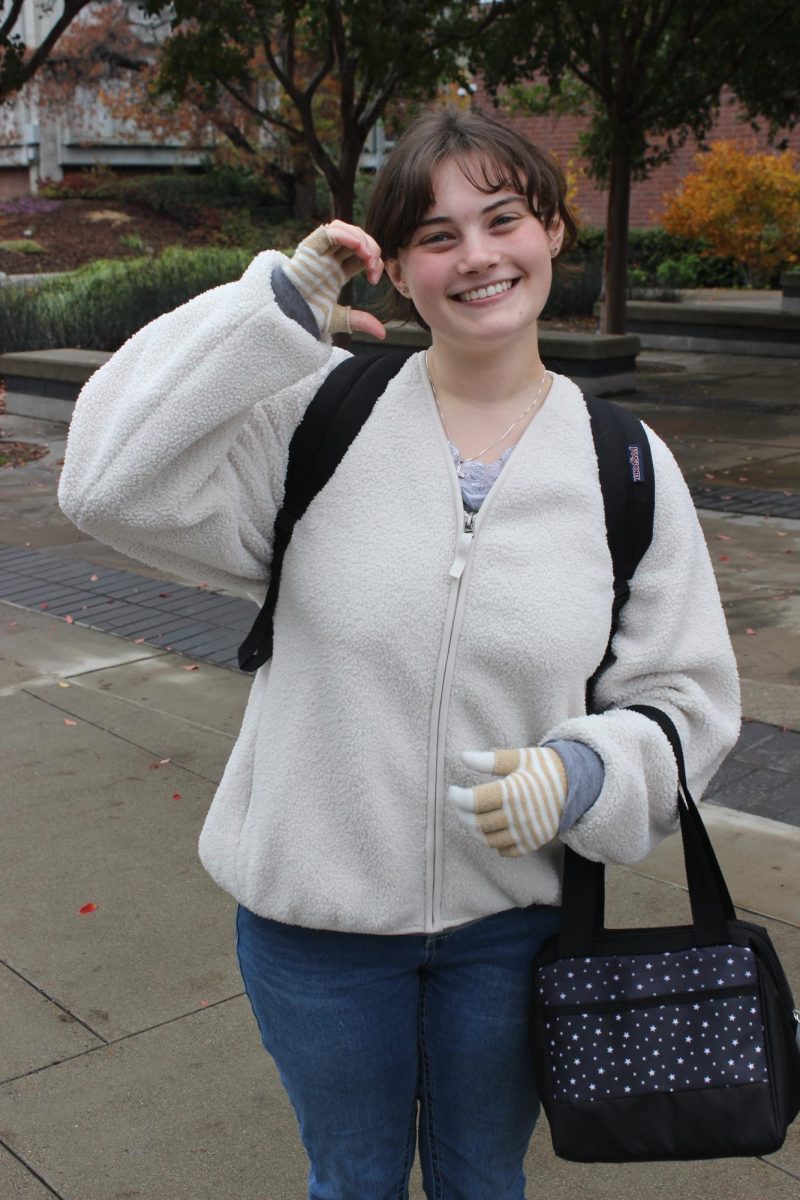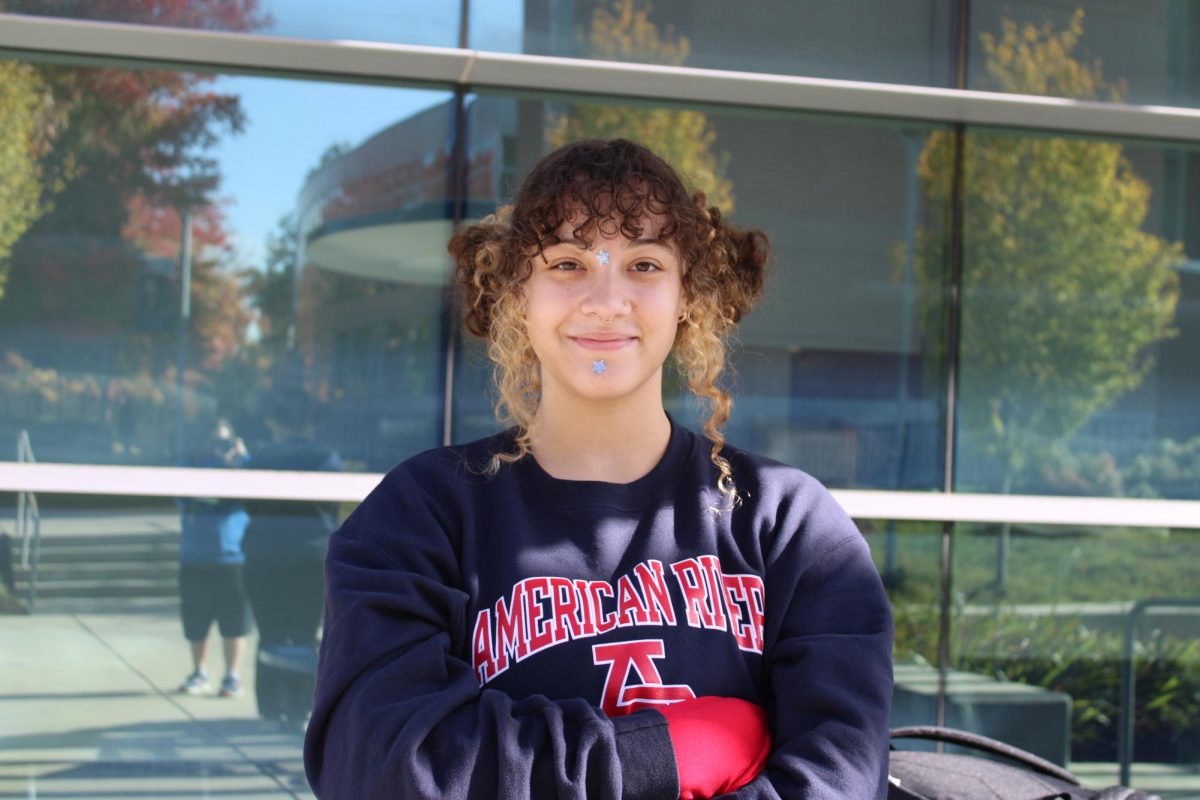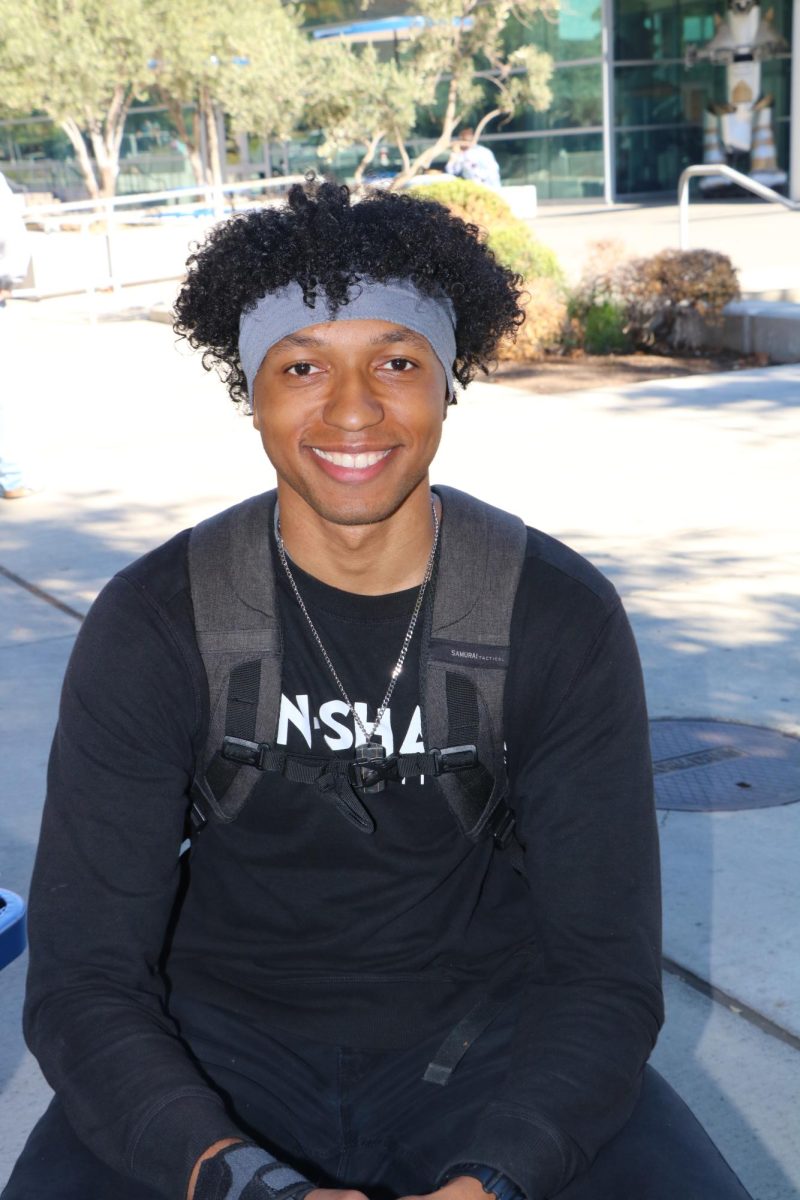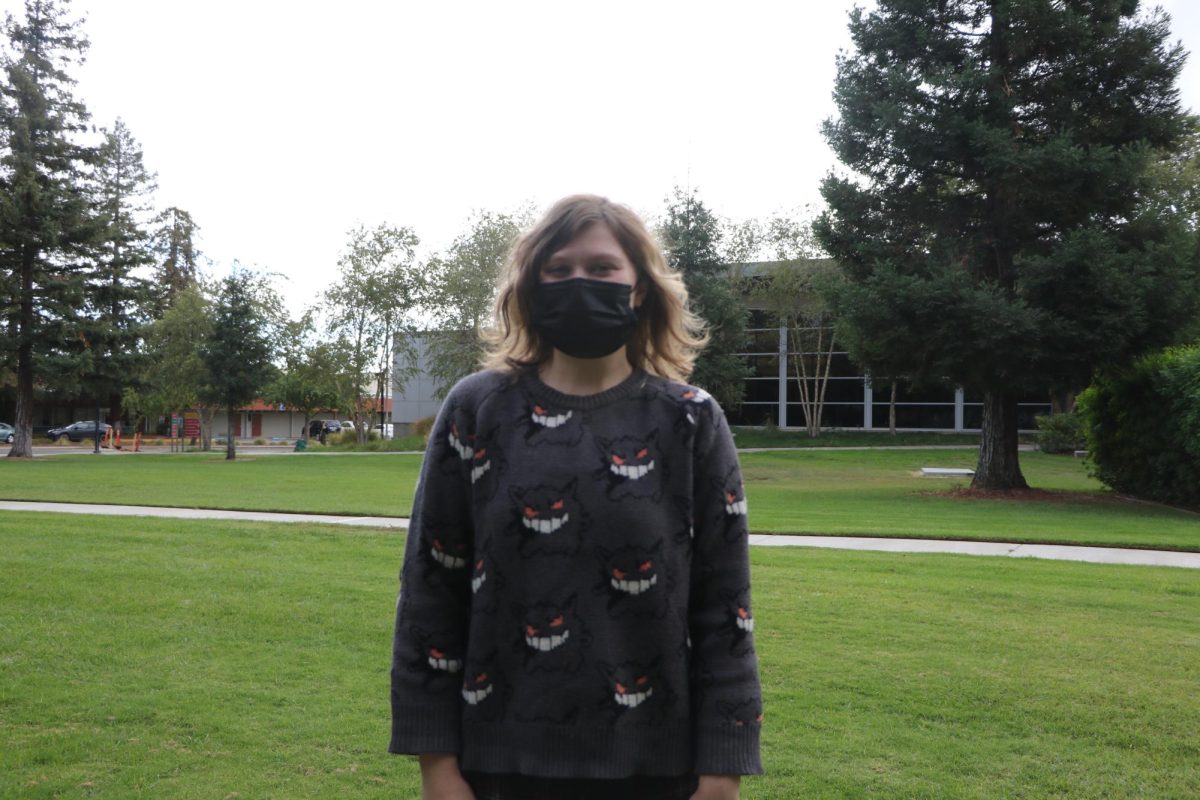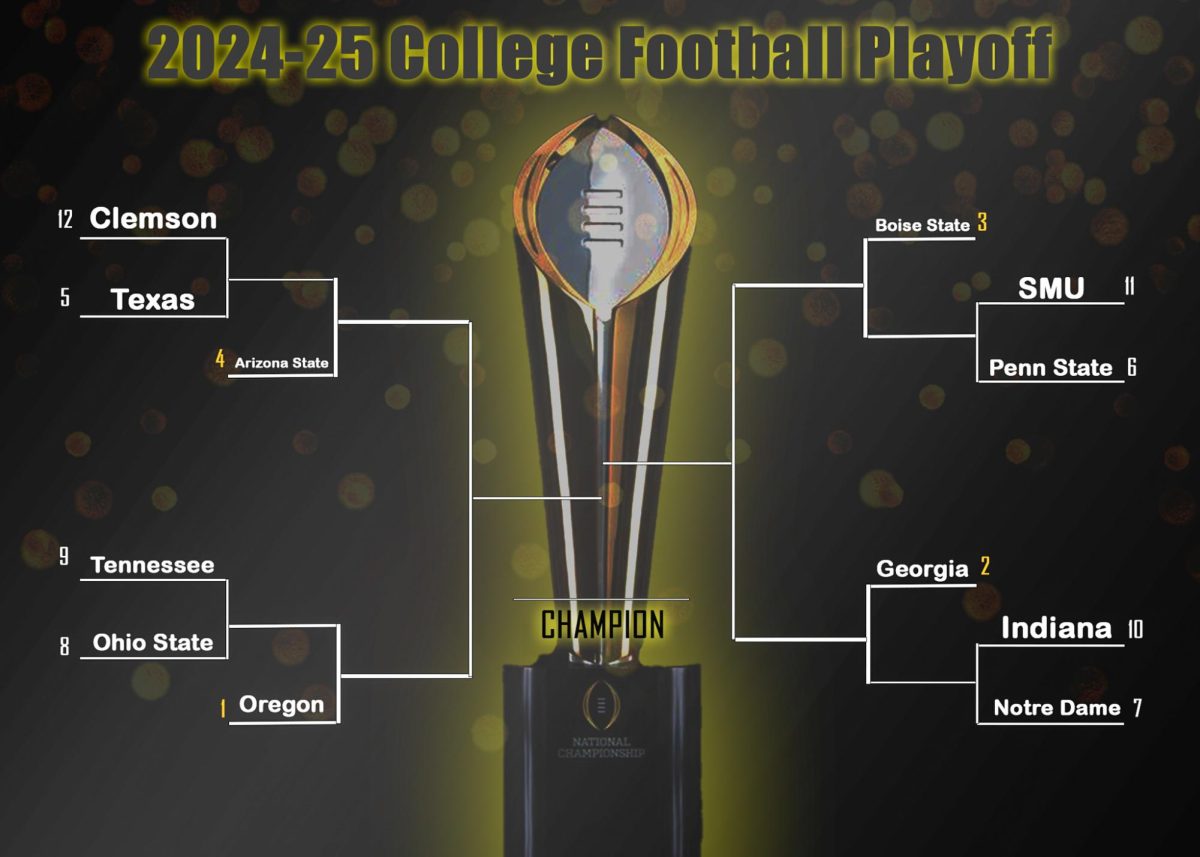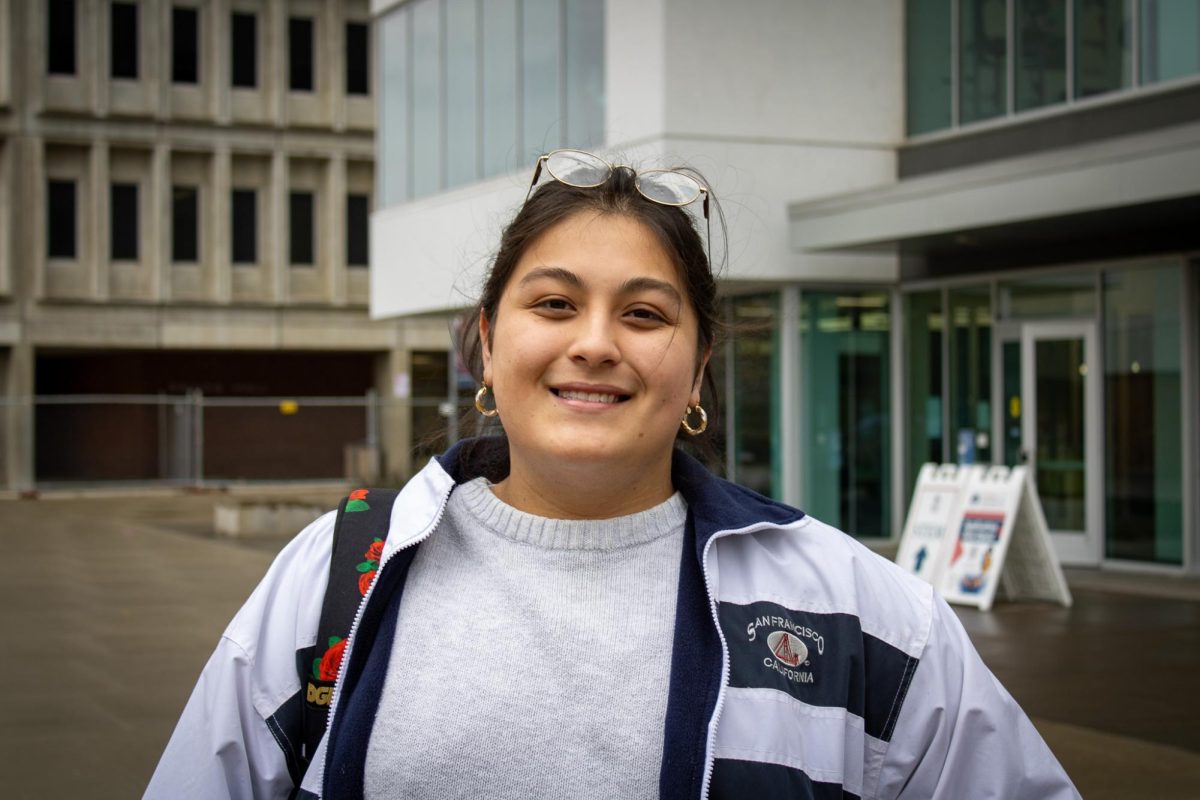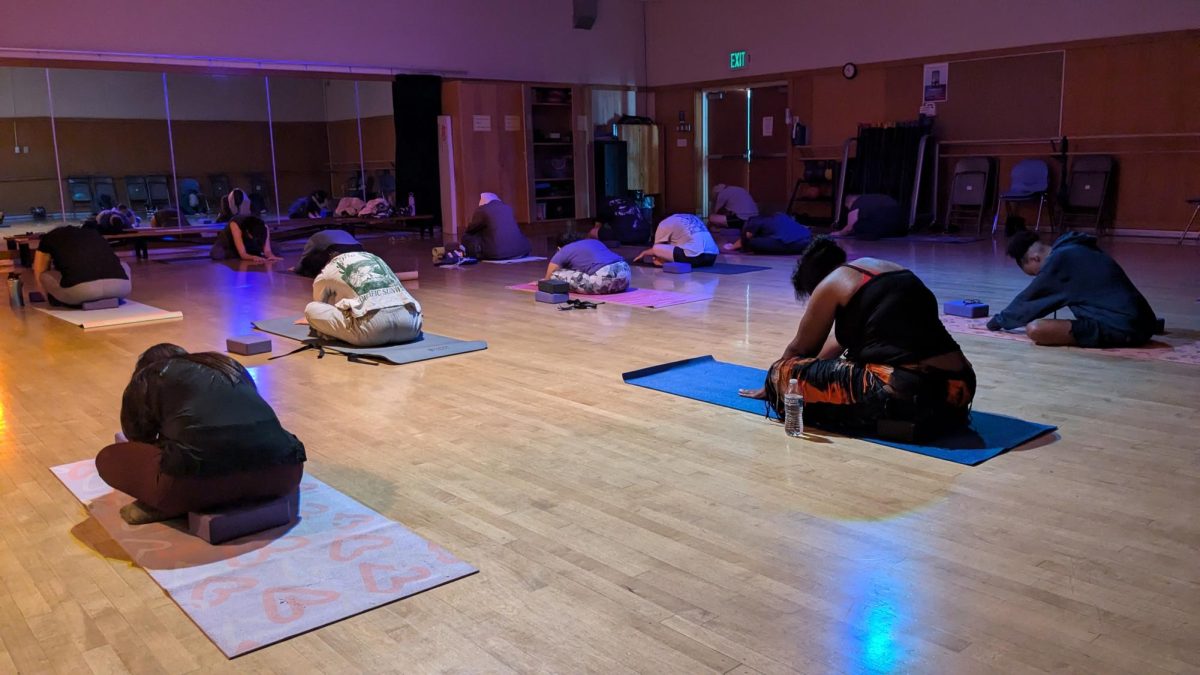A previous version of the photo caption incorrectly stated that Tiffany Manosh is blind. She is visually impaired.
A visually impaired staff member at American River College had her cane snapped as she exited the bathroom in the Liberal Arts breezeway, leading to questions regarding the school’s Americans with Disabilities Act (ADA) compliance and how to deal with issues that a disabled person may experience on campus.
Tiffany Manosh was trying to return to her office in the Liberal Arts building when someone stepped on and snapped the end of her walking cane, making it nearly impossible for her to walk back without assistance.
“I guess what I was infuriated with is (my cane is) my eye,” Manosh said. “I had to walk really slowly,” Manosh said.
(Story continues below)
The person who stepped on the cane, according to Manosh, stepped on the cane as she was opening the door to exit the bathroom and immediately left the scene without acknowledging that the cane had been broken.
Manosh, a computer instructional assistant for the Business and Computer Science department at ARC, suffers from a disease known as Retinitis Pigmentosa, which causes progressive degeneration of the retina.
Additionally, Manosh cannot see at all during the night hours.
The disease is an inherited trait, and Manosh first started experiencing symptoms in elementary school. It has progressively gotten worse as years have gone by.
Manosh said that she found the moments immediately following her cane snapping incredibly nerve-racking.
“I didn’t have the confidence to be able to navigate because I didn’t have the cane with me,” said Manosh.
Though she did manage to walk back to her office without assistance, Manosh said that she was furious at the time and that her co-workers were shocked at the story they were told.
“People are so engrossed with their phones and Facebook and emails that they lose awareness of their surroundings,” said Manosh. “And that affects some of us that are disabled.”
Manosh personally feels the ARC campus is easy to navigate even with her vision impairment. Her concern lies in having to rely on others to be aware.
“The obstacles I’m constantly having to pay attention to are skateboarders, bikers — even though there are signs all over campus saying don’t do those things,” said Manosh.
Manosh said that she has to take extra precautions to be aware of skateboarders and bikers nearby.
Manosh described two separate incidents that she’s been involved with recently, one being a person cutting her off as she was trying to get on the No. 1 bus at the intersection of College Oak Drive and Orange Grove Avenue.
In another incident, someone opened a door to the Student Center and stood directly in the doorway before she inadvertently bumped him with her cane.
Brian Dillon, an ARC student and friend of Manosh, also has disabilities that force him to use both a walker and wheelchair. He was very upset when Manosh told him what had happened.
“When she first told me what happened, two things crossed my mind: One, I was concerned for her safety. Two, it was anger, disgust, frustration at people’s general disregard for consideration or common courtesy for other people,” said Dillon.
Dillon himself claims to have had several incidents around campus with people blocking hallways, and at some points has even had people curse at him when asking someone to move.
“People’s unwillingness to … cooperate with allowing someone who has a disability to get by is part of a bigger problem,” said Dillon.
Dillon said that he’s encountered numerous instances of difficulty in regards to the school’s ADA compliance.
Robin Neal, dean at ARC responsible for ADA compliance, encouraged students and staff alike to come to her if they are experiencing issues with disabled compliance.
“I didn’t have the confidence to be able to navigate because I didn’t have the cane with me.” —Tiffany Manosh
“It’s everybody’s business to make sure we all take care of each other. My interest is to help, not make it difficult,” Neal said.
Neal outlined the process by which students and staff can address ADA issues.
Staff members can request an interactive process meeting involving Neal, the staff member’s supervisor and themselves. Grievances are heard, the functions of the staff member’s job are reviewed and accommodations are made to rid any challenges that a staff member may face.
Students who have a disability but are not a part of the Disabled Students Programs and Services (DSPS) programs are sent to the program’s office, located at the north entrance of the Student Services building.
Student involved with DSPS and still having an issues can go to Neal.
Students can also contact the Civil Rights Office directly and file a complaint, in which the office will then contact the college and request a report from the school regarding the issue.
Dillon mentioned times in which the handicap buttons to open doors malfunctioned or were broken and not fixed in a timely manner, and even had to call maintenance to get him out of the bathroom when a button didn’t operate properly.
“It’s one thing to have a law on compliance,” he said. “It’s another thing to actually have it be applied.”
Director of Operations Dan McKechnie said limitations like staffing affect maintenance ability to respond to every issue quickly.
“We have only two maintenance technicians for over a million square feet,” said McKechnie. “It really is just a volume, manpower thing.”
McKechnie said that while he would love more staff to better be able to address issues, achieving that goal is not easily done.
“We try to get to (issues) as fast as we can,” said McKechnie. “We can only do so much, it’s sad to say.”
McKechnie did outline that anyone who notices maintenance issues such as broken doors, buttons and windows is encouraged to let administrative assistants know in the different department offices around the campus.
Those administrative assistants, in turn, have access to a work order management system, which is then directed to maintenance so that it is aware of the problem.
While there are options and steps to address ADA issues on campus, both Manosh and Dillon agree a cultural shift is needed both in willingness to help or at least be considerate of others.
“If you make a mistake, own up to it,” said Manosh. “Say you are sorry and take the time to see how you can help rectify the situation. A little common courtesy goes a long way.”


